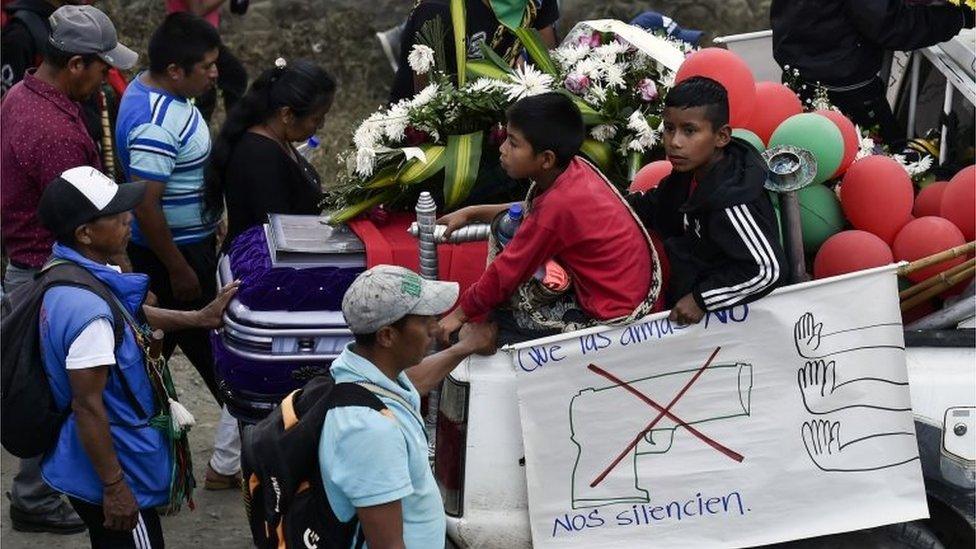The child environmentalist receiving death threats in Colombia
- Published
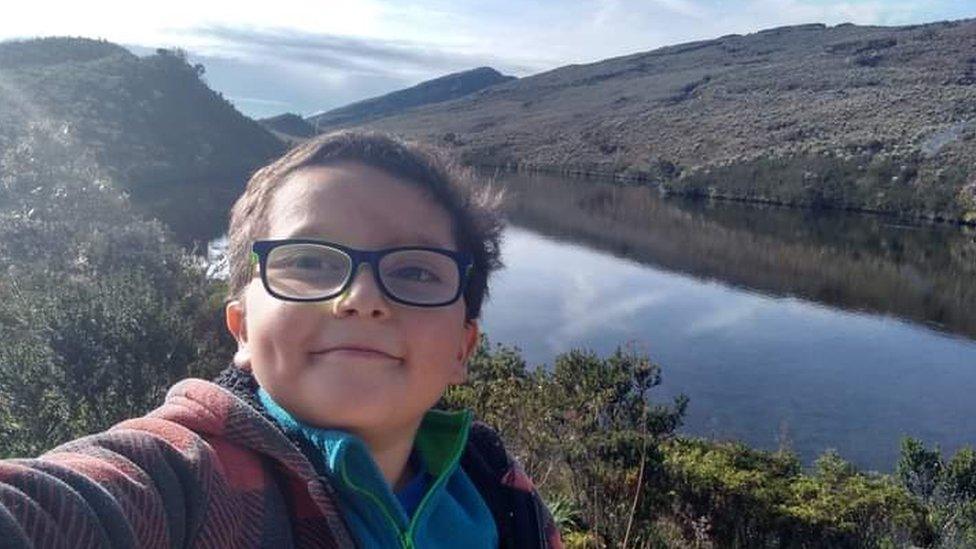
Francisco Vera founded an environmental group aged nine
An 11-year-old boy who received death threats after calling for better access to education during the Covid-19 pandemic has been recognised by the UN for his activism.
Francisco Vera is well-known in his native Colombia for his environmental campaigns and defence of children's rights.
On 15 January he received a death threat from an anonymous Twitter account after posting a video urging the government to improve internet connectivity for children studying online.
Now the UN has hand-delivered a letter to Francisco, congratulating him for his pioneering work in the South American country where it is not uncommon for environmental activists to be killed.
In an interview with the BBC, the school student says he welcomes criticism but that violent threats are unacceptable.
The incident sparked outrage in Colombia, where violence against human rights activists and environmental leaders is on the rise. It also renewed calls for more civility on social media.
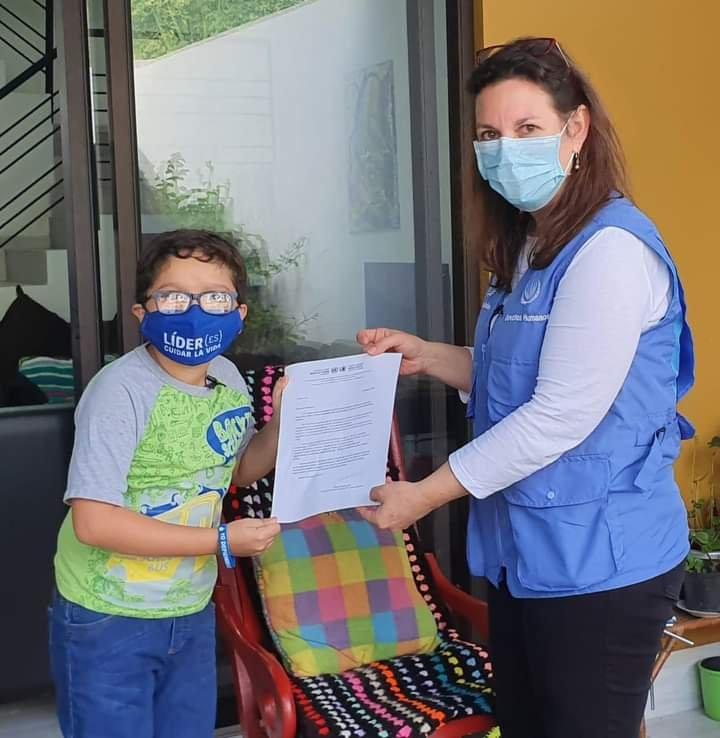
Francisco received a letter from the UN in Colombia last week

"These type of threats are common in Colombia and they often go unpunished," said Lourdes Castro from Somos Defensores, a group that documents attacks against community leaders.
"But to threaten an 11-year-old just shows you that we have reached new levels of intolerance and lack of respect for freedom of speech," she explains.
In a letter signed by Michelle Bachelet, the UN's High Commissioner for Human Rights, the organisation thanks Francisco for his activism and says that the world needs more young people with his "passion to protect the planet".
"We also agree with you that internet connectivity needs to be improved for boys and girls around the world," the letter adds.
It was delivered personally to Francisco by Ms Bachelet's delegate in Colombia. Francisco said he was happy to get recognition and hopes to continue working with his peers on environmental projects this year, including a campaign to ban single-use plastics in Colombia.
"Criticism is part of life, and I welcome it as long as it is constructive and respectful," the student told the BBC. "But there is obviously no place for insults and threats."
Francisco said that he started his career as an activist at the age of six, when he began to attend protests against bullfighting with his family.
His love for nature led him to get involved in other issues, like recycling or campaigns against mining in nature reserves, he explained.
"I grew up in the mountains with ducks, chickens, goats and birds," Francisco said. "That motivated me to be an animal rights defender, and then an environmental activist."
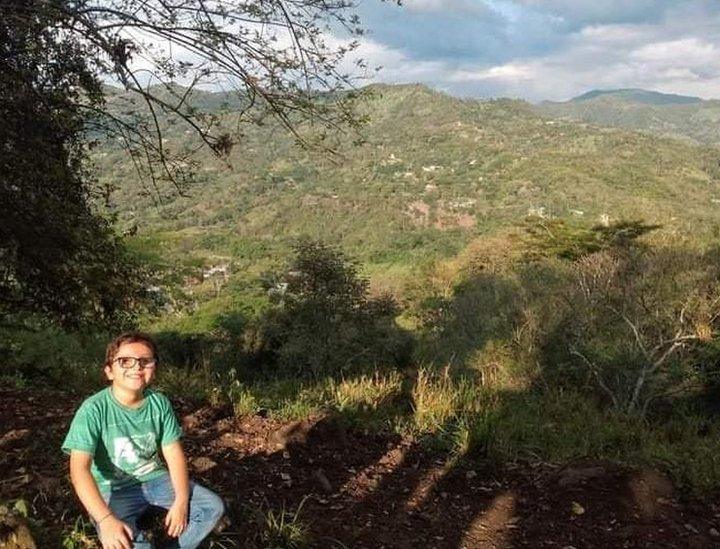
Francisco is growing up close to the Andes mountains which he says inspires his activism

In 2019 Francisco founded an environmental group called Guardians of Life in his hometown of Villeta, about 90km (55 miles) from the capital Bogotá. He and six friends from school started by marching into the town centre, picking up rubbish along the way and chanting slogans about climate change.
The group now has more than 200 members in 11 provinces across Colombia as well as members in Mexico and Argentina. Francisco is also part of Greta Thunberg's Fridays for Future movement.
"Children need to have a say in the big topics of our day, like climate change or economic policy," Francisco said. "We are not only the future. We are already being affected by the decisions adults make."
Francisco's mother, Ana Maria Manzanares, is hoping that the recent threat against her son on Twitter is nothing more than a cruel joke.
She said government officials had called her to offer their support and are investigating who may be behind the message. Her son had been mocked online previously but had never received any threats.
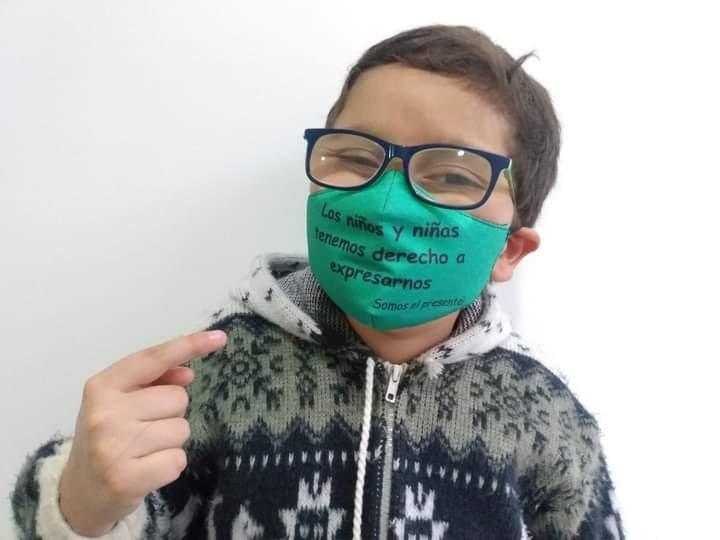
Francisco wears a mask reading "boys and girls have the right to free speech"

"It's a difficult situation," Mrs Manzanares said. "But I'm confident that my son can stay focused on what he likes to do and put this behind him."
Colombian President Ivan Duque promised last week to find the "bandits" who threatened Francisco. Police say the investigation is ongoing.
According to the UN, 53 human rights defenders were murdered in Colombia last year and an additional 80 murders of community leaders are still being investigated.
Global Witness, an international human rights group, has said that 64 environmentalists were killed in Colombia in 2019, making it the most dangerous country for environmental activists that year.

More about global environmental activism:
Environment activists: 'I got death and rape threats’
Related topics
- Published19 May 2017
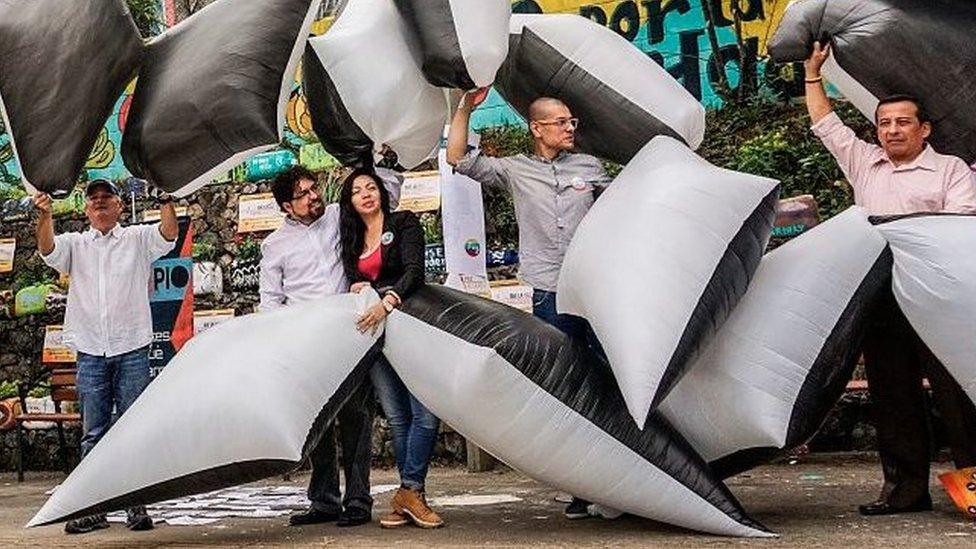
- Published14 August 2019
